Ford Ranger vs Vauxhall Astra Sports Tourer – Performance, range & efficiency compared
Both models have their strengths – but which one suits you more?
Compare performance, efficiency, price and space directly: Ford Ranger or Vauxhall Astra Sports Tourer?
Costs and Efficiency:
Price and efficiency are often the first things buyers look at. Here it becomes clear which model has the long-term edge – whether at the pump, the plug, or in purchase price.
Vauxhall Astra Sports Tourer has a clearly advantage in terms of price – it starts at 26500 £, while the Ford Ranger costs 37500 £. That’s a price difference of around 11048 £.
Fuel consumption also shows a difference: Vauxhall Astra Sports Tourer manages with 2.30 L and is therefore noticeable more efficient than the Ford Ranger with 3.10 L. The difference is about 0.80 L per 100 km.
As for range, the Vauxhall Astra Sports Tourer performs decisively better – achieving up to 413 km, about 371 km more than the Ford Ranger.
Engine and Performance:
Power, torque and acceleration are the classic benchmarks for car enthusiasts – and here, some clear differences start to show.
When it comes to engine power, the Ford Ranger has a distinct edge – offering 292 HP compared to 225 HP. That’s roughly 67 HP more horsepower.
In acceleration from 0 to 100 km/h, the Vauxhall Astra Sports Tourer is slight quicker – completing the sprint in 7.60 s, while the Ford Ranger takes 7.90 s. That’s about 0.30 s faster.
In terms of top speed, the Vauxhall Astra Sports Tourer performs somewhat better – reaching 235 km/h, while the Ford Ranger tops out at 190 km/h. The difference is around 45 km/h.
There’s also a difference in torque: Ford Ranger pulls decisively stronger with 697 Nm compared to 360 Nm. That’s about 337 Nm difference.
Space and Everyday Use:
Whether family car or daily driver – which one offers more room, flexibility and comfort?
Both vehicles offer seating for 5 people.
In curb weight, Vauxhall Astra Sports Tourer is decisively lighter – 1394 kg compared to 2082 kg. The difference is around 688 kg.
When it comes to payload, Ford Ranger clearly takes the win – 1108 kg compared to 497 kg. That’s a difference of about 611 kg.
Who comes out on top?
Overall, the Vauxhall Astra Sports Tourer shows itself to be offers a more balanced package and secures the title of DriveDuel Champion.
It convinces with the more balanced overall package and proves to be the more versatile choice for everyday use.
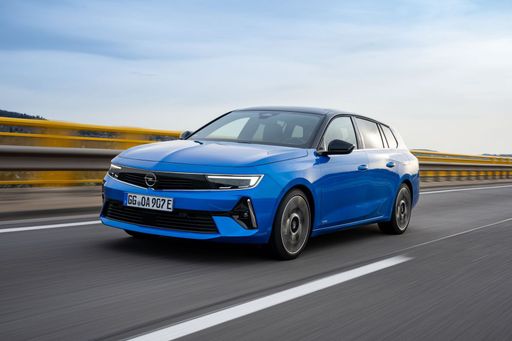
Vauxhall Astra Sports Tourer
Ford Ranger
The Ford Ranger stands out in the pickup market with its robust build and versatile capabilities, making it a popular choice for both work and leisure. Its modern design is complemented by a well-equipped interior, providing comfort and advanced technology. Whether tackling challenging terrains or cruising through the city, the Ranger delivers a reliable and dynamic driving experience.
details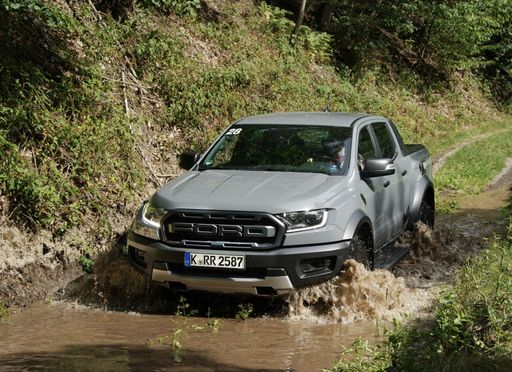 @ media.ford.com
@ media.ford.com
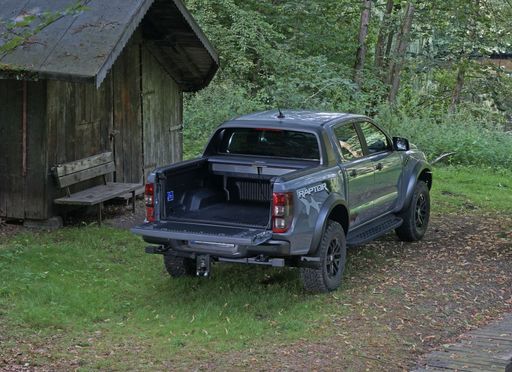 @ media.ford.com
@ media.ford.com
Vauxhall Astra Sports Tourer
The Opel Astra Sports Tourer is a stylish and practical estate car that offers a versatile blend of comfort and functionality. With its sleek design and spacious boot, it caters perfectly to families and those with an active lifestyle. The interior is thoughtfully designed, providing both driver and passengers with a comfortable and technologically enhanced experience.
details @ media.stellantis.com
@ media.stellantis.com
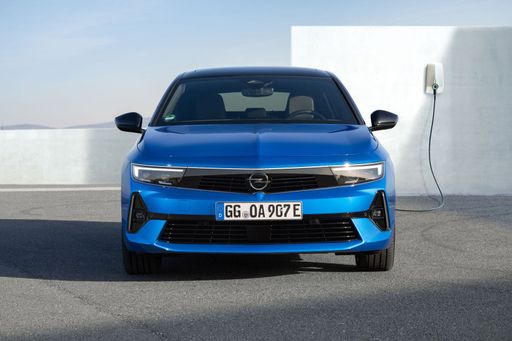 @ media.stellantis.com
@ media.stellantis.com
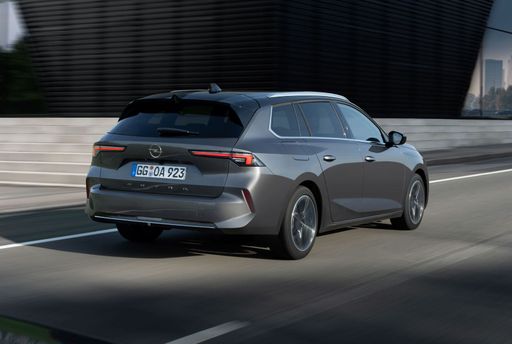 @ media.stellantis.com
@ media.stellantis.com

|

|
|
|
|
Costs and Consumption |
|
|---|---|
|
Price
37500 - 71900 £
|
Price
26500 - 41800 £
|
|
Consumption L/100km
3.1 - 13.8 L
|
Consumption L/100km
2.3 - 6.1 L
|
|
Consumption kWh/100km
-
|
Consumption kWh/100km
15.60 kWh
|
|
Electric Range
42 km
|
Electric Range
81 - 413 km
|
|
Battery Capacity
11.80 kWh
|
Battery Capacity
51 kWh
|
|
co2
70 - 315 g/km
|
co2
0 - 137 g/km
|
|
Fuel tank capacity
80 L
|
Fuel tank capacity
42 - 52 L
|
Dimensions and Body |
|
|---|---|
|
Body Type
Pickup
|
Body Type
Estate
|
|
Seats
2 - 5
|
Seats
5
|
|
Doors
2 - 4
|
Doors
5
|
|
Curb weight
2082 - 2511 kg
|
Curb weight
1394 - 1760 kg
|
|
Trunk capacity
-
|
Trunk capacity
516 - 597 L
|
|
Length
5370 - 5420 mm
|
Length
4642 mm
|
|
Width
1918 - 1968 mm
|
Width
1860 mm
|
|
Height
1868 - 1922 mm
|
Height
1443 - 1481 mm
|
|
Max trunk capacity
-
|
Max trunk capacity
1553 - 1634 L
|
|
Payload
676 - 1108 kg
|
Payload
413 - 497 kg
|
Engine and Performance |
|
|---|---|
|
Engine Type
Diesel, Petrol, Plugin Hybrid
|
Engine Type
Petrol, Diesel, Electric, Petrol MHEV, Plugin Hybrid
|
|
Transmission
Manuel, Automatic
|
Transmission
Manuel, Automatic
|
|
Transmission Detail
Manual Gearbox, Automatic Gearbox
|
Transmission Detail
Manual Gearbox, Automatic Gearbox, Reduction Gearbox, Dual-Clutch Automatic
|
|
Drive Type
All-Wheel Drive
|
Drive Type
Front-Wheel Drive
|
|
Power HP
170 - 292 HP
|
Power HP
130 - 225 HP
|
|
Acceleration 0-100km/h
7.9 - 12.1 s
|
Acceleration 0-100km/h
7.6 - 11 s
|
|
Max Speed
180 - 190 km/h
|
Max Speed
170 - 235 km/h
|
|
Torque
405 - 697 Nm
|
Torque
230 - 360 Nm
|
|
Number of Cylinders
4 - 6
|
Number of Cylinders
3 - 4
|
|
Power kW
125 - 215 kW
|
Power kW
96 - 165 kW
|
|
Engine capacity
1996 - 2993 cm3
|
Engine capacity
1199 - 1598 cm3
|
General |
|
|---|---|
|
Model Year
2022 - 2025
|
Model Year
2023 - 2025
|
|
CO2 Efficiency Class
G, B
|
CO2 Efficiency Class
D, E, A, C, B
|
|
Brand
Ford
|
Brand
Vauxhall
|
What drive types are available for the Ford Ranger?
The Ford Ranger is offered with All-Wheel Drive.
The prices and data displayed are estimates based on German list prices and may vary by country. This information is not legally binding.
